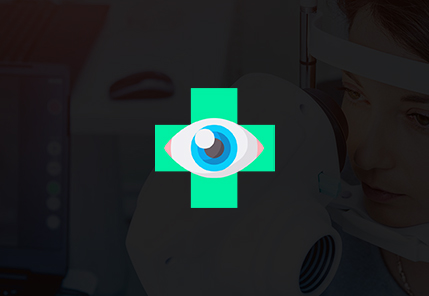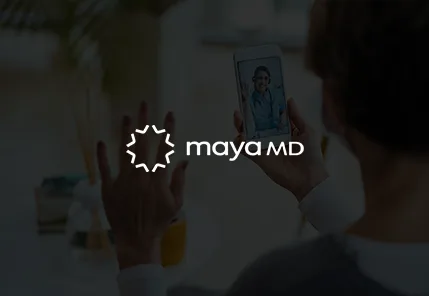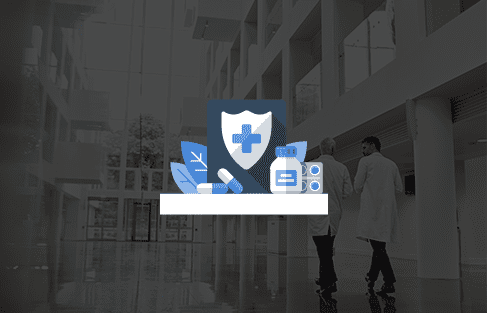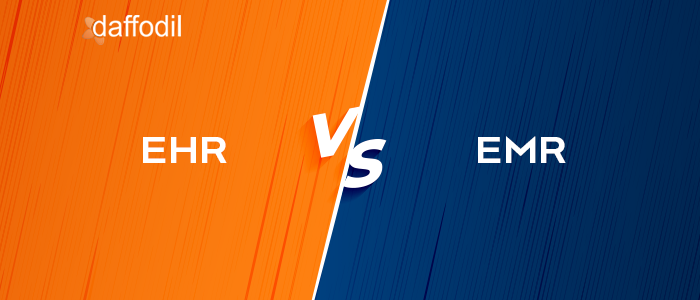Trusted by:
Streamlining healthcare operations with a comprehensive Hospital Management System
A hospital management system is essential for a healthcare facility to streamline workflow and communication between departments. This comprehensive solution usually integrates independent modules that help in patient registration, health information exchange, billing & claim processing, managing care assets, etc. to ensure flawless transfer of information to keep the healthcare facility in sync.
At Daffodil, we utilize our extensive experience in building healthcare solutions to help hospitals digitize patient management, inventory management, finance & insurance management, laboratory & reports management, and more. Our healthcare experts dive deep into the workflow of each department to ensure that communication and data exchange is executed seamlessly.

Focus on improving care with:

Our HMS Development Services Include:
We enable customizable, detailed, and integrated healthcare services with our HMS services. Whether you have a small or large healthcare practice, we can integrate a robust HMS solution that can accommodate care delivery and administration irrespective of the size or type of your practice.
Leverage Daffodil’s proficiency in facilitating extensive end-to-end care delivery and administration across mobile, desktop, and tablet devices. Combine urgent care services with on-demand scheduling, data collection, monitoring, and reduced administrative time using our mobile HMS services.
Get a secure, efficient, and effective HMS solution that complies with the latest international standards. We ensure compliance with HIPAA, HL-7, CPT, ICD-10, and FDA regulations so that you can focus on the more crucial aspects of your healthcare organization.
We carry out an in-depth analysis of your existing digital infrastructure to identify gaps and inefficiencies. Get a holistically improved HMS with sufficient workarounds and improvements over previous legacy systems and outdated methods of administration.
With our HMS services that integrate continuous optimization, you can rest assured that your evolving needs are always met with the most innovative solutions. We help you stay up to date with rigorously optimized toolchains and continued technical support.
The HMS solution we develop for you comes with real-time data analytics and reporting capabilities. We help you gain deeper insights into your hospital’s operations to help you improve patient outcomes and your overall bottom line.
Our clients success stories

Developing a comprehensive EHR system for the largest eye care group in the United States
Read More >
Developing an AI-powered telehealth application for a US-based health tech firm
Read More >
New York’s leading hospital reduces door to balloon time for STEMI patients through an emergency response app
Read More >Our engagement models
Tell us your vision and let us help you bring it to life. Transform your business ideas into viable solutions using our tech expertise.
Upgrade your current functionalities as per latest industry standards. Our customized software services will always keep you ahead of the game.
Hire dedicated talent to bridge the skill set gap and accelerate project delivery.
Our team of healthcare industry experts can help you fastrack technological innovation and achieve sustained business growth.
Why Daffodil Software
Recognized excellence, proven customer satisfaction
Categorized as an aspirant in global PEAK Matrix assessment
Recommended vendor for custom software development services
Mentioned as a company to watch in the AI space
Categorized as a leader in digital engineering services
20+
years of software engineering excellence
150+
global clientele
4.8
Avg CSAT score
95%
customer retention rate
Key components of an effective Hospital Management System
The patient registration system helps to register patients in a healthcare facility. It allows the healthcare staff to enter and maintain patient demographic information, such as name, address, contact information, medical history, insurance details, etc.
This module in the hospital management system is integrated into an EHR system that enables healthcare providers to access patient information conveniently. Some benefits of the patient registration module include patient data accuracy, streamlined patient intake processes, reduced administrative burden on healthcare staff, and enhanced patient satisfaction.
An appointment scheduling system enables users to book, manage, and track appointments with physicians. This module in a hospital management system allows users to view available time slots, schedule appointments, send automated appointment reminders, and reschedule or cancel appointments as needed.
Some of the certain benefits of this module include streamlined appointment booking, reduced no-shows, and improved customer satisfaction. This helps in deriving helpful insights about appointment patterns, staff utilization, and customer behavior to improve business decisions.
Medical claim management helps healthcare facilities to manage the process of submitting, processing, and settling medical insurance claims. It automates the manual process of managing claims and streamlines the claim process to reduce the time & effort required to process the claims. Claim management is an integral part of the billing system that enables providers to submit claims to insurance companies for reimbursement of medical services.
An electronic medical record (EMR) facilitates the recording, storage, retrieval, and management of patient health information (PHI). It maintains a digital version of the patient’s paper chart and comprises information such as the medical history of the patient, diagnosis, medications, lab results, and radiology images.
An EMR in a hospital management system comprises multiple modules including clinical documentation, medication management, decision support, and patient portal. The EMR system is integrated with significant components of the digital healthcare system to get a centralized, comprehensive view of patient care and health information.
Billing & invoicing enable providers to manage their financial operations. This involves generating invoices for services rendered and collecting payments from patients and insurance providers.
Some of the critical components of the billing and invoicing module in a hospital management system include compliance, insurance verification, and integration. The billing system should comply with relevant regulations such as HIPPA and Medicare guidelines to avoid any penalties. It should also be capable of verifying the insurance coverage for patients and generating bills accordingly.
The OPD/IPD module in a hospital management system helps in managing patient appointments, medical records, billing & insurance info, and other administrative tasks related to both in-patient & out-patient care. The OPD/IPD management generally comprises the following aspects:
OPD: This involves patient registration, billing, medicine allocation, and patient identification through bar code, labs/investigation data centralization.
IPD: Patient admission, bed allotment, department-wise data for bed occupancy, patient recovery tracking, billing, discharge, and release.
Standards and compliance
Our remote patient monitoring solutions strictly adhere to medical standards and compliances. Data security is the cornerstone of our software solutions. Our policies ensure data interoperability and secure electronic access. We comply with standards for exchanging, integrating, sharing, and retrieving electronic health information. We also follow International standards to transmit, store, retrieve, print, process, and display medical imaging information.
- Compliance with Health Information privacy standards (GDPR, HIPAA, CMMIDEV/3)
- Adherence with Healthcare Standards (e.g., HL7, FHIR, CDA, DICOM)
- Compliance with ISO 9001: 2015 Certifications
- Expertise in Medical terms usage (SNOMED)
We create agile and adaptable EHR software solutions to help you improve patient outcomes.
Watch our brand video.
Your first EMR/EHR consulting session is on us!
Sign up for a 30 min no-obligation
strategic session with us
- Validation of your project idea/ scope of your project
- Actionable insights on which technology would suit your requirements
- Industry specific best practices that can be applied to your project
- Implementation and engagement plan of action
- Ballpark estimate and time-frame for development
Frequently asked questions (FAQs)
HMSs help healthcare providers reduce their efforts by automating clinical tasks making the daily functioning of healthcare organizations quick and hassle-free. Here are the benefits they offer:
- The quality of care delivery is boosted with seamless workflows and fewer errors.
- Enables holistic decision-making by improving communication and collaboration among healthcare providers.
- It helps reduce costs with tools to improve revenue cycle management.
- Patient data is accessible in real-time and is stored securely.
- It enhances patient engagement and overall satisfaction.
Here are the types of data that HMSs use:
- Clinical data is collected from observation during ongoing patient care.
- Patient data consists of details about the patient, i.e., their name, age, and contact details as well as treatment history.
- Laboratory data involves records of tests conducted on the patient, imaging, and radiology data.
- Inventory data helps keep stock of equipment, pharmaceuticals, etc. required for the daily functioning of a healthcare organization.
- Financial and Legal data consists of information about assets, liabilities, cash flow and regulatory compliance.
A hospital management system is an amalgamation of several tools that facilitate clinical workflows and support allied operations of a healthcare organization. Some features of HMS include:
- Billing System
- Doctor Timetables and Patient Scheduling System
- Inventory Monitoring and Purchase Management
- Patient and Doctor-facing Mobile Apps
- Insurance and Credit Tracking
- Emergency Care Module
- General Information and Inquiries Module
Some of the factors to consider when choosing an HMS include the system’s ease of use, customizability, scalability, security features, and interoperability with other systems.
Moreover, it is also important to weigh the HMS vendor’s track record, experience in the industry, and pricing structures. All the stakeholders who may be affected by the HMS must be included in the decision-making process to arrive at the right solution for the organization.

























